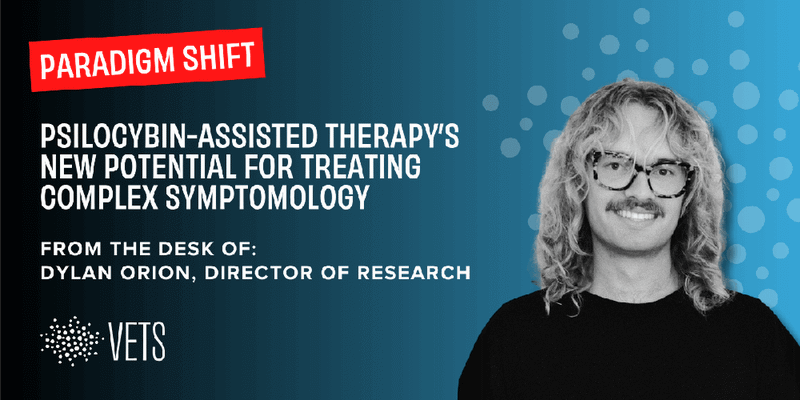Psychedelic-assisted therapies have shown great potential to remediate complex symptomology across a spectrum of mental health conditions. According to the article “Psychedelic Therapy’s Transdiagnostic Effects: A Research Domain Criteria (RDoC) Perspective” published in Frontiers in Psychiatry (Kelly et al., 2021), psychedelic-assisted therapy offers promising transdiagnostic benefits by addressing common maladaptive cognitive and emotional patterns, such as those experienced with PTSD.
Psilocybin-assisted therapy in particular is attracting great interest due to its purported ability to treat distinct mental health conditions with differing neurological pathologies. Historically, psilocybin has been researched as an antidepressant because of its potential to reduce negative ruminations and self-referential processing. Ongoing phase 3 clinical trials are nearing the FDA’s finish line for legalization of psilocybin-assisted therapy for depression, but that’s not all that’s in store.
A recent study published in EClinicalMedicine (Anderson et al., 2020) observing demoralization in long-term AIDS survivors found that psilocybin reduced PTSD symptomology. The finding has inspired several new studies investigating the potential efficacy of psilocybin-assisted therapy for PTSD. Researchers at Johns Hopkins and The Ohio State University are currently enrolling participants to be a part of this groundbreaking research.
Their work points to the transdiagnostic potential of psilocybin, and offers hope for veterans seeking remedies for complex mental health conditions and comorbidities. If you’re interested in participating in these clinical trials, check out our research center to apply for enrollment.
About Dylan Orion, VETS Director of Research
Dylan Orion has worked on several clinical trials investigating the therapeutic efficacy of psilocybin for a range of conditions. He studied at the Johns Hopkins Center for Psychedelic and Consciousness Research where he received a degree in psychedelic informed Neuroscience. Additionally, Dylan is trained in psychedelic facilitation and integration through the Usona Institute and Johns Hopkins Medicine.

